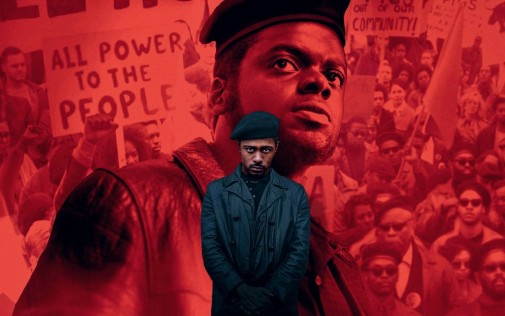
Some people don't care about "category fraud" and that's understandable. I'm a big proponent of just being happy that great artists are honored, ignoring the categorization of their work, especially when it's all so subjective. However, when it comes to the Oscar acting prizes, it does feel wrong that awards specifically created to honor character actors are now regularly dominated by stars in leading roles. Instead of opening avenues to highlight those performers with less narratively-prominent parts, the Supporting categories have become a way for leading actors that couldn't crack the leading prizes to still win gold. This game of fraudulent campaigning may have just hit its apex with this year's slew of Best "Supporting" Actor and Actress nominees.
To organize my thoughts and hopefully make the arguments clearer, here's a ranking of the "category fraud" cases of the year from least to most egregious. This is all subjective, though I'd side-eye anyone who tried to argue for the legitimacy of that top choice...

Sacha Baron Cohen in THE TRIAL OF THE CHICAGO 7
Aaron Sorkin's Best Picture hopeful is an ensemble piece, which means that it's difficult and very dubious to separate its cast between leads and supporting roles. Nonetheless, the script is so unbalanced in how it treats the titular Chicago 7 that some characters rise above the others in terms of relevancy and POV. I'd say Sorkin structures the movie around the ideological conflicts of Eddie Redmayne's Tom Hayden and Sacha Baron Cohen's Abbie Hoffman, making them into protagonists, much to the movie's detriment.
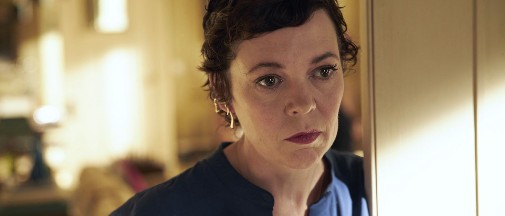
Olivia Colman in THE FATHER
The film is about the relationship between father and daughter and, while his POV dominates, she also has moments alone without the patriarch. My love for The Father comes, in part, from the juxtaposition of two different experiences of the same prolonged situation. We get to watch a mind lost to dementia from within and also from outside. Plus, when sharing scenes, Colman is usually the one modulating tone, guiding Hopkins through confusing events. Even though Olivia Williams sometimes steps into Colman's shoes for added disorientation, the Best Actress champion of 2018 is still a co-lead in my eyes.
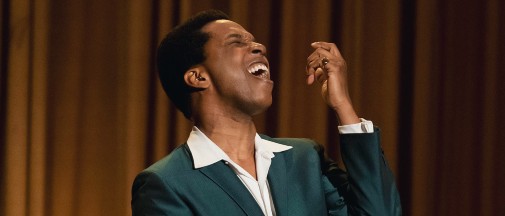
Leslie Odom Jr. in ONE NIGHT IN MIAMI…
Similar to Baron Cohen, Leslie Odom Jr. acts in an ensemble picture that divides its narrative between multiple individuals. Despite this, just like in Trial of the Chicago 7, the script of One Night in Miami… constructs itself around one principal ideological conflict with two characters arguing throughout the main part of the film. They are Kinglsey Ben-Adir's Malcolm X and Leslie Odom Jr.'s Sam Cooke. Furthermore, both the real-life people's early deaths haunt the movie and lay a mournful veil over it. The conclusion of the entire affair also focuses on Cooke, implying his experience and personal arc are what defines the theme and structure of Regina King's movie.
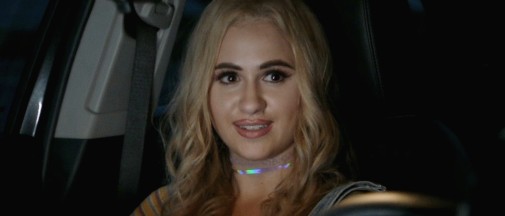
Maria Bakalova in BORAT SUBSEQUENT MOVIEFILM
Borat's sequel is about Borat, for sure. However, one element makes it stand apart from the original and redefines the tone of the comedy even as the mechanics of it remain constant. That element is Maria Bakalova's Tutat, Borat's daughter, and the gift he plans to give to American politicians. Her presence completely reconfigures the movie, giving it a narrative arc, an earnest sensibility so at odds with the original it manages to elevate the sequel above its predecessor. Such a central part of the film deserves to be considered a co-lead. What is Borat Subsequent Film's story if not the evolving relationship of this father-and-daughter duo?

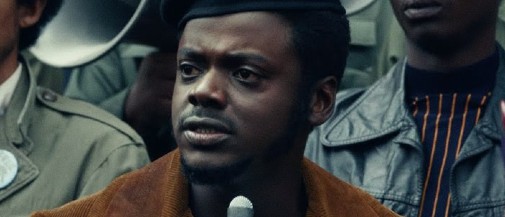
LaKeith Stanfield and Daniel Kaluuya in JUDAS AND THE BLACK MESSIAH
This is ridiculous. Judas and the Black Messiah is a classic two-hander, a story told about and from the perspective of two individuals whose experiences intersect. Daniel Kaluuya's campaign as a supporting actor was already ridiculous enough, but to nominate LaKeith Stanfield alongside him just makes these nominations all the more preposterous. In one regard, I love the fact Kaluuya is a two-time nominee and that Stanfield was nominated. They're great actors who have many Oscar-worthy works in their respective filmographies. That being said, I also wonder what genuinely supporting actors were ignored in order for AMPAS to reward these leading men.
Think of how insane it would look for both Thelma and Louise to be named supporting players in the movie titled after them. Who is the lead of Judas and the Black Messiah if not Judas (the betrayer) nor the Black Messiah (the great man who is betrayed)? If the Academy wanted to nominate these two so much, why not recognize them in the leading actor category? In truth, that might have been what happened. If AMPAS ever releases their vote totals, I wouldn't be surprised if Kaluuya ranked higher than some of the actual nominees in the Best Actor race and just ended in Supporting because that's where he got more votes, overall.
Considering all of this, I think this year's Best Supporting Actor category may very well be the worst example of category fraud ever. There's only one inarguable supporting player among the bunch, the less famous of the recognized actors, Paul Raci for Sound of Metal. In the past, it's been common for more than half of the category to be made up of leads but it's never gotten to this level of absurdity. For instance, while I consider all of the Best Supporting Actress nominees of 2006 to be in the wrong category, all but Cate Blanchett are somewhat defensible cases that came from ensemble movies where it's trickier to assess and decide who's at the center(s) of the dramatic story.
The last time we saw Supporting lineups comprised of only supporting players was 2011 for men and 2017 for women. Of course, that's my assessment and I'm sure many would disagree. Nonetheless, I find it concerning that this trend is becoming somewhat akin to an unwritten rule. So much so, that people's opinions on the Oscar contenders seem to be skewed, making genuinely supporting actors have to contend with criticisms of their roles being too small. I recall conversations like that occurring when Mahershala Ali won the Oscar for Moonlight and when Regina King conquered her trophy for If Beale Street Could Talk and remain baffled by them. Of course, their roles are small – they are supporting characters, not protagonists.
Thankfully, both performers managed to win the gold, defeating such lead actors as Dev Patel in Lion and The Favourite ladies. While trying to keep positive, I fear that such results may become increasingly rarer and that AMPAS will continue to do nothing to rectify that. For all their many faults, the HFPA has committees that examine these category placements and rule in favor or against the studio's campaigns. It doesn't seem like that would be so hard to implement and, even if the rulings wouldn't always be universally accepted, they surely would result in fewer eyebrow-raising lineups.
I'd love to know your opinion on this subject. Do you, dear readers, care about "category fraud"? How would you rank this year's examples and what lineups do you consider to be the most "fraudulent" in Oscar history? Please, sound off on the comments.